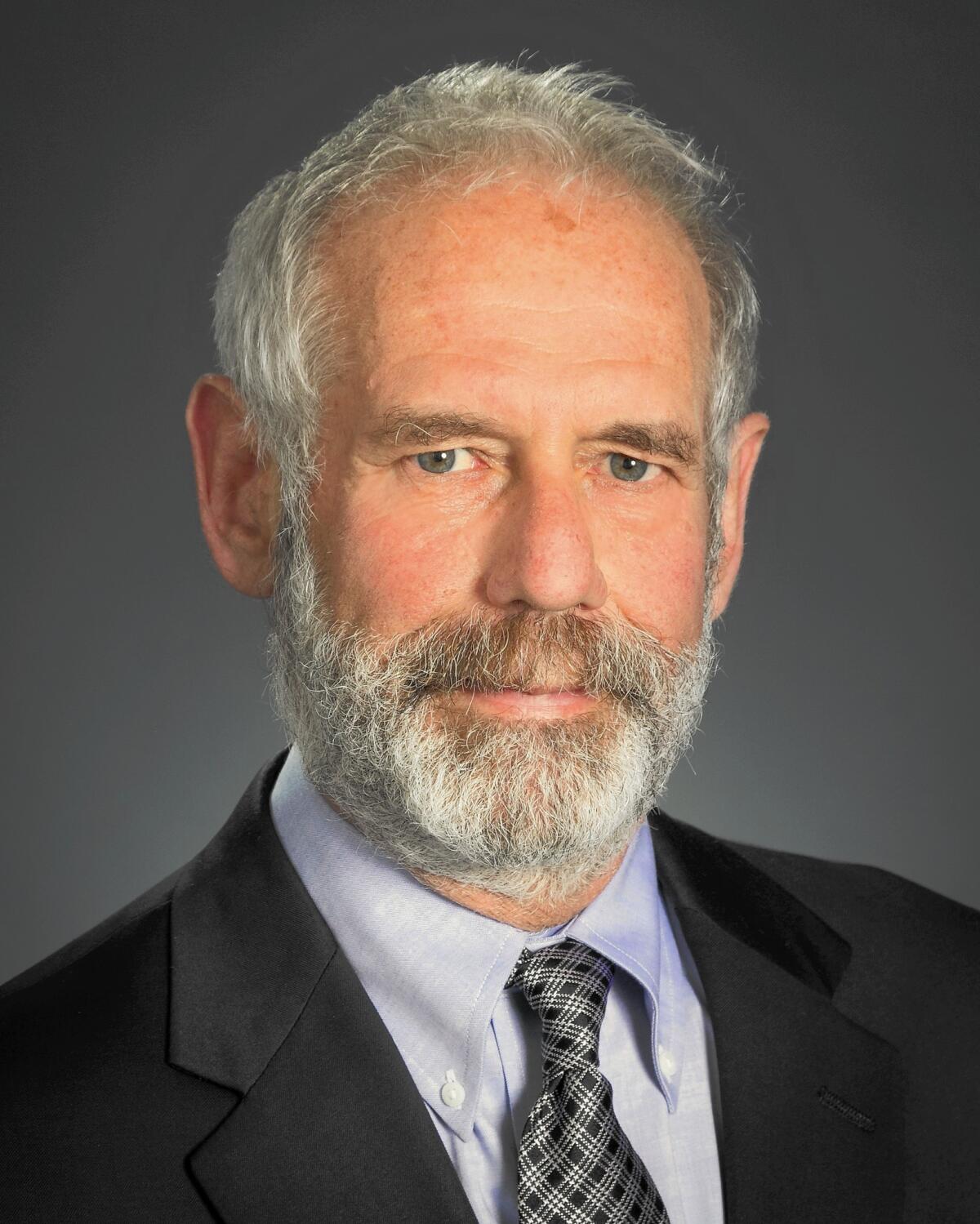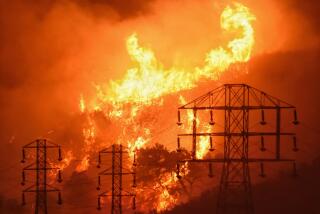Q&A: PUC’s Michael Picker on San Onofre, San Bruno and California’s energy outlook

- Share via
A year ago, Michael Picker took the helm of one of the most powerful agencies in the state.
The decisions of the California Public Utilities Commission, which regulates the state’s investor-owned utilities, affect virtually all consumers and their pocketbooks.
The beleaguered agency came under fire after revelations of secret talks between PUC officials and Southern California Edison executives about the closed San Onofre nuclear power plant. The closing of the plant resulted in a settlement agreement that is costing consumers about $3.3 billion.
After Gov. Jerry Brown appointed him president of the PUC on Dec. 23, 2014, Picker promised reforms, not only of the commission but of utility operations. He also pledged better public access to the commission.
Picker’s administration took action, issuing a $16.7-million fine against Edison for the undisclosed talks and a $1.6-billion fine against Pacific Gas & Electric Co. for the 2010 natural gas pipeline explosion and resulting deaths in San Bruno, Calif.
The Times recently spoke with Picker about his first year, commission reforms and the state of the utility industry in California.
What are the highlights of your first year as president of the commission?
I’d say that one of the significant things that we’ve started is the five commissioners are starting to work as a governing body for the entire organization.
There’s not a lot of accountability within the organization from top to bottom; now, the commissioners are talking about that. Past presidents, the last three presidents, were strong presidents. The president hired the executive director. The executive director hired all of the division directors. And there was a real chain of command. Currently the commissioners meet publicly on the day before the commission meetings for most of the day, and we talk about what kind of organization we need to have to meet the needs of the state of California in the future.
What would you say to the public to allay concerns about the commission policing itself following undisclosed talks, especially related to the San Onofre nuclear plant?
I think a lot of this stuff comes from a lack of understanding. It really — knowing that those conversations had taken place — didn’t make any difference in me getting to the decision, by reading the published record. That’s a tough thing for people to take much solace in. There are people who feel injured who participated in the process and felt betrayed by it. That I can sympathize with and so I don’t have good answers to that. I’m still struggling with this tension of how do we make the organization more accessible to people without creating new barriers and making it harder. I’m going to continue to rely on the Legislature. But I think that they ought to kind of come up with one bill rather than 10 bills. They ought to kind of come to a consensus on the direction they’re sending to us and tell us what’s most important.
In its move to protect consumers, the PUC has issued fines this year against Southern California Edison and Pacific Gas & Electric. Some folks say that the fines didn’t go far enough. How would you characterize them?
The purpose of a fine is to deter behavior. It’s not revenge. So we faced that issue with the San Bruno decision and their penalties. We didn’t want to fine them just to punish them. We wanted to make sure that it went to some useful purpose, so we actually made them spend the money, spend shareholder dollars to repair portions of the system.
But we set it at the highest level that we thought we could set it at without actually making their finances unstable, so that when they go to borrow money to cover cost of current operations that their borrowing rate doesn’t go up. That punishes ratepayers, not shareholders. If they look financially shaky because we have fined them too much, then their cost of borrowing goes up and then we end up passing that along to ratepayers. There are some limits to how much you can punish people.
Can you say whether you would revisit the settlement agreement on the San Onofre nuclear plant?
I can’t say that I find the basis in the record to do that. Now, it may be that new evidence would come up, but I read the settlement. I read the amended settlement. I read all the record that led up to it and all the record that came after it.
I don’t think it’s the greatest settlement, but on balance it’s a fair and reasonable settlement. And it prevents us from having to live with the uncertainty of whether we’re going to get more out of litigation. I think that’s the alternative, is that this goes to the courts for a couple of decades. I’ve read the record, and I’m not sure we would do any better. It’s lawful and it’s reasonable on the face of it. So I can’t see a basis for reopening it.
So what would you tell consumers about what you see California’s energy future looking like?
Boy, first thing I would tell everybody is plant a tree on the west-facing side of your house. The shade value would probably be a better buy for you than almost anything else you can do. And it’s pretty.
Part of the challenge here is how do you create opportunities for customers to make choices? How do you support them in doing that when both we at the PUC and the utilities really kind of come out of this command-and-control worldview? Utilities have a service area. They have always had one product that they sell at one price they offer. And you take it or you don’t get the service. Our job was to make sure that they did that for everybody and that they didn’t gouge them.
Who is it that makes a choice on rooftop solar because they’re environmentalists? Who does it because they have reliability problems? We don’t know who those folks are. We don’t even know how they think. That’s a different mind-set for us to create really broad retail markets or just to support them and to make sure that they’re fair, if we don’t understand how people think in them.
Twitter: @ivanlpenn
More to Read
Inside the business of entertainment
The Wide Shot brings you news, analysis and insights on everything from streaming wars to production — and what it all means for the future.
You may occasionally receive promotional content from the Los Angeles Times.











